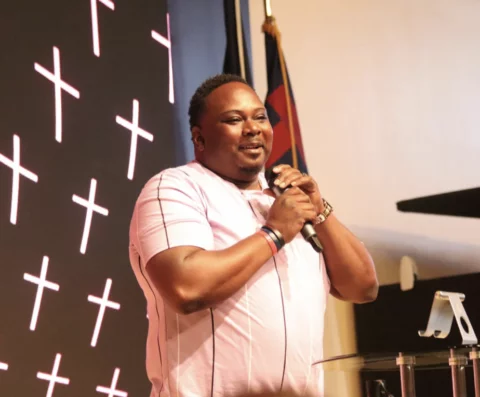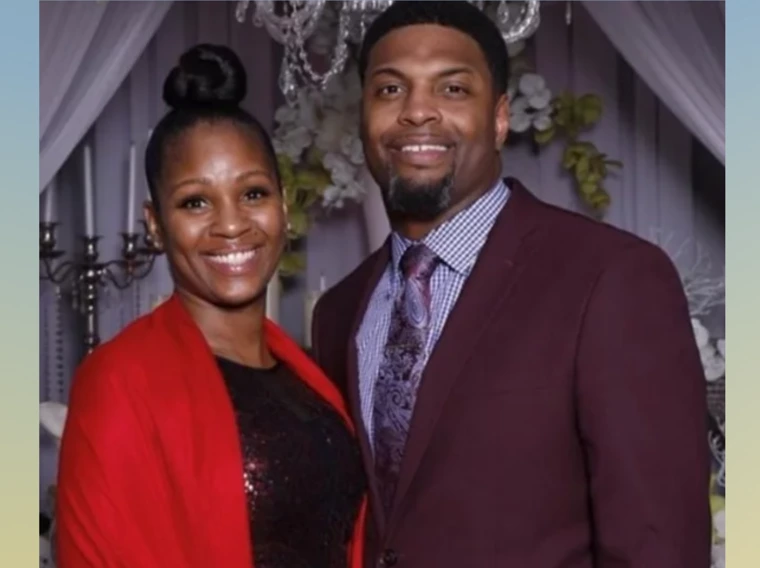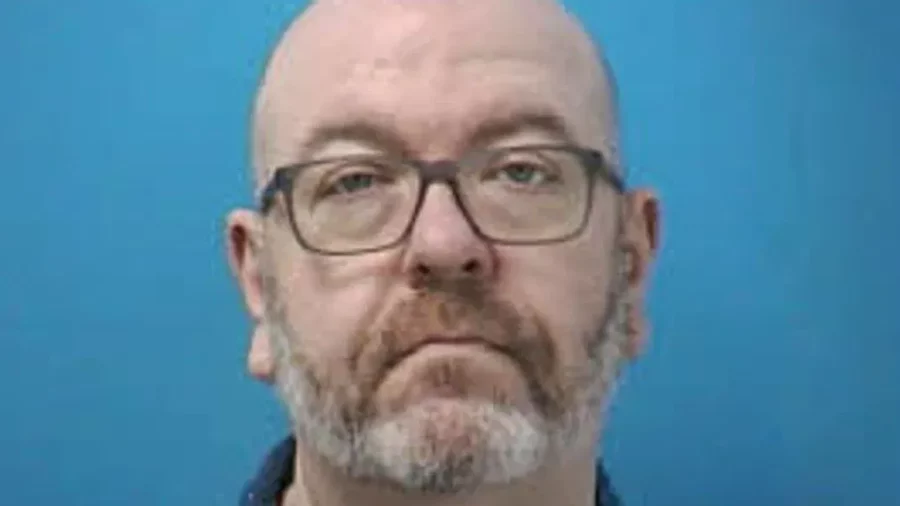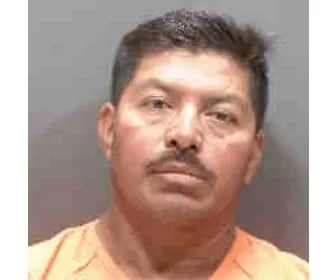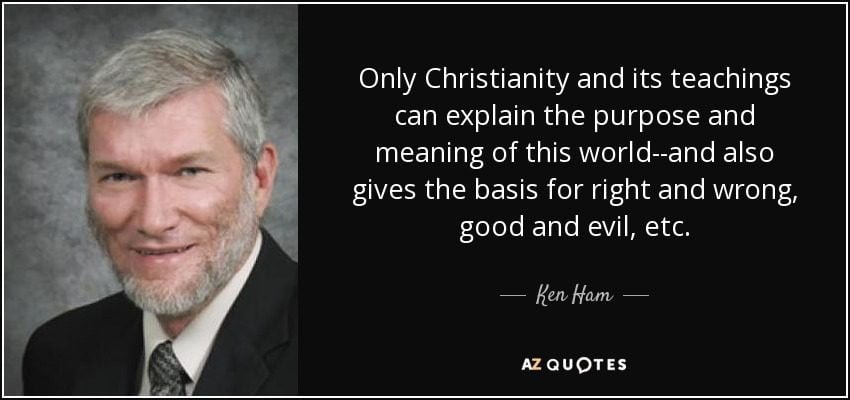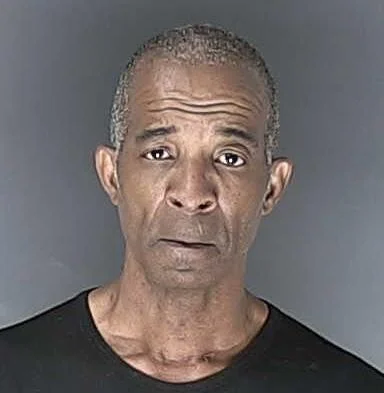
The Black Collar Crime Series relies on public news stories and publicly available information for its content. If any incorrect information is found, please contact Bruce Gerencser. Nothing in this post should be construed as an accusation of guilt. Those accused of crimes are innocent until proven guilty.
Robert Gordon, a music teacher at First United Pentecostal Church in Security, Colorado, and a public school bus driver, was charged last week with sexual assault on a child by one in a position of trust, sexual assault on a child, unlawful sexual contact, and enticement of a child.
A former church music teacher accused of sexually assaulting a child may have more victims, according to arrest papers obtained by 11 News.
The papers listed a 17-year-old victim, along with the 14-year-old whose parents first brought the case to law enforcement’s attention.
As 11 News first reported last week, 58-year-old Robert Henry Gordon was arrested April 13, three days after the El Paso County Sheriff’s Office received a tip from those parents.
According to the arrest affidavit, the victim’s mother first noticed something wasn’t right when she saw her son using a cell phone in his bedroom — despite never owning one.
“The parents of the child, a 14-year-old male, found inappropriate text messages between their child and the suspect,” part of a news release from EPSO reads. “The parents reported their findings to the El Paso County Sheriff’s Office. An El Paso County Sheriff’s Office patrol deputy took the initial report and immediately forwarded the information to detectives. SVU detectives conducted further investigation. The child was interviewed by a certified forensic interviewer and evidence collected.”
The child told investigators Gordon gave him the phone, according to the arrest papers. The papers go on to say that the boy told law enforcement Gordon would use religion to justify their relationship.
The sheriff’s office said Gordon served as a music teacher at First United Pentecostal Church in Security and worked as a school bus driver in multiple districts, including Widefield School District 3.
….
Gordon remains in jail as of Monday night and is being held without bond. He is facing charges of sexual assault on a child by one in a position of trust, sexual assault on a child, unlawful sexual contact, and enticement of a child.
The arrest papers say Gordon’s criminal history includes similar charges dating back to the late 90s. He has pleaded guilty to some of these past charges and been acquitted on others.
Today, more charges were brought against Gordon.
Two new cases involving child sexual misconduct have been brought against Robert Gordon on the same day as his first court appearance for alleged sexual assault on a child in a third case.
Gordon, a 58-year-old church music teacher and former bus driver, was arrested April 13 on suspicion of sexual assault on a child by a person in a position of trust, sexual assault on a child, unlawful sexual contact and enticement of a child after an investigation by the El Paso County Sheriff’s Office.
On Thursday, two additional criminal cases were brought against Gordon. In one, Gordon faces one charge of enticing a child, and in the other, he faces alleged sexual exploitation of a child, enticement of a child and child abuse.
In the original case from last week, the parents of a 14-year-old boy reported finding inappropriate text messages earlier this month between their son and Gordon, a friend of the family, according to the arrest affidavit obtained by The Gazette.
The affidavit revealed that the victim spent most weekends at Gordon’s house, where the victim told investigators he engaged in sexual behaviors with either Gordon or another juvenile almost every weekend for around three years. He was 11 years old the first time he spent the night in Gordon’s bedroom and Gordon allegedly had sex with him.
Gordon allegedly gave the victim gifts and money, and justified the alleged sexual abuse with a religious sermon about respecting elders, the affidavit said.
The affidavit referenced a 17-year-old who also spent weekends at Gordon’s house and may have also engaged in sexual activity with the victim in this case, according to the affidavit.
Gordon is due back in court on April 27 for official filing of charges in this case and is being held on no bond, court records show.
Gordon has a history of sexual misconduct dating back twenty-five years:
Gordon was the subject of a yearlong investigation in El Paso County that began in August 2011, according to previous reporting by The Gazette. A male victim reported he and Gordon allegedly had a sexual relationship in 2001 when the boy was around 12 years old. He was said to have met Gordon at a church in Security-Widefield.
In a 2011 interview with an El Paso County sheriff’s deputy during this investigation, “Mr. Gordon did admit to having a sexual relationship with (the victim). Mr Gordon said he was in his 30’s at the time and (the victim) would have been around 12 or 13 years old,” the affidavit said.
Of the eight total charges brought against Gordon in that case, four were dismissed by the district attorney and he was acquitted of the other four by a jury in 2014. He pleaded not guilty to six counts of sexual assault on a child by a person in a position of trust with a victim under the age of 15 and two counts of sexual assault on a child with a pattern of sexual abuse.
Around the time that alleged relationship would have been going on, a jury acquitted Gordon in a separate case in 2001 where he faced two counts of sexual assault on a child with force and sexual assault on a child by a person in a position of trust, court records show. Gordon was found not guilty of the charges in that case in February 2001.
According to the arrest affidavit in this case previously obtained by The Gazette, a 14-year-old boy accused Gordon of having sexual intercourse with him “quite a few” times while the boy slept over at Gordon’s house in 1996. The teen alleged that the first incident happened when he was 12 or 13, the warrant said.
Gordon was convicted of harboring a runaway child, a misdemeanor, in 1998, and was sentenced to a one-year unsupervised deferred sentence.
First United Pentecostal has made no public statement about Gordon’s arrest. Here’s what I want to know: did the church know about Gordon’s past? Did they run state and federal background checks on him? Did they contact his previous employers? Did they, did they, did they . . . the answer is likely no. It is clear that Gordon is a sexual predator. First United must be called on to account for allowing him to have ready access to church children.
Bruce Gerencser, 68, lives in rural Northwest Ohio with his wife of 47 years. He and his wife have six grown children and sixteen grandchildren. Bruce pastored Evangelical churches for twenty-five years in Ohio, Texas, and Michigan. Bruce left the ministry in 2005, and in 2008 he left Christianity. Bruce is now a humanist and an atheist.
Your comments are welcome and appreciated. All first-time comments are moderated. Please read the commenting rules before commenting.
You can email Bruce via the Contact Form.




